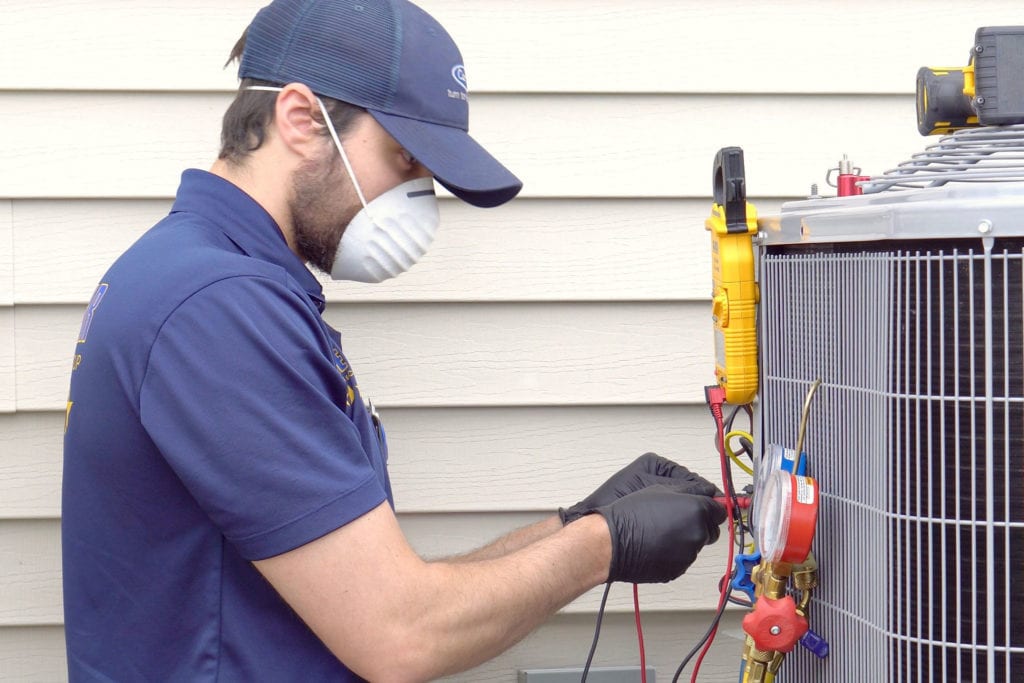The quality of indoor air is a critical yet often neglected aspect of our everyday lives. Many people are unaware that the air within our homes and workplaces can be more polluted than the air outside. This is where heating, airflow, and air conditioning systems, commonly referred to as heating, ventilation, and air conditioning, come into play. These systems not only regulate temperature but also play a significant role in maintaining the air we breathe. Understanding how HVAC works can help you create a healthier living environment for you and your family.
As we spend a substantial portion of our life indoors, the quality of indoor air has a direct impact on our health, comfort, and overall well-being. From reducing this link and pollutants to maintaining proper humidity levels, a properly working HVAC system is crucial. This article will walk you through the various components of HVAC, explore common issues you might encounter, and provide professional advice on maximizing your system's efficiency and enhancing indoor air quality. Whether you are a property owner looking to improve your system or a corporate leader seeking to improve workplace conditions, understanding HVAC is fundamental to creating a pleasant and healthy environment.
Understanding HVAC Systems
HVAC is warming, ventilation, and cooling, as they are crucial components for maintaining a pleasant indoor environment. These systems serve to manage heat, humidity, and air quality inside residential and commercial areas. Through integrating the 3 functions, they play a crucial function in maintaining the house and office stays cozy throughout regardless of the climate.

The heating systems commonly employ furnaces and heat pumps for warm up spaces in chillier months. Conversely, air conditioning systems aid cool the air during the summer, offering relief from the heat plus humidity. Ventilation is equally crucial because it introduces new air from outside plus removes unhealthy indoor air, reducing pollutants and improving general indoor air quality. A properly working HVAC system means enjoying optimal satisfaction and better indoor atmosphere.
To thoroughly grasp the way these systems operate, you should familiarize yourself with the parts, such as thermostats, ductwork, air filters, plus others. Regular maintenance plus knowledge of usual issues can assist guarantee your heating and cooling system functions effectively plus reliably. Becoming familiar with the specific features of your HVAC system may also assist in making informed decisions about upgrades and maintenance, thereby enhancing the standard of your living space.
The Impact of HVAC on Indoor Air Quality
Indoor air quality is vital for maintaining a healthy and comfortable living space, and HVAC systems play a significant role in this aspect. Well-maintained and appropriately designed HVAC systems clean and ventilate the air, filtering out pollutants, allergens, and contaminants that can harm health. This is especially important in homes and commercial buildings where people spend significant amounts of time. Effective ventilation, a important component of HVAC systems, ensures that clean air is brought in while old air is removed, promoting a healthier indoor environment.
Humidity control is an additional important function of HVAC systems that directly impacts indoor air quality. High humidity levels can cause the growth of mold, bacteria, and dust mites, that can instigate allergies and respiratory issues. Conversely, reduced humidity can cause discomfort and trigger dry skin and respiratory problems. An efficient HVAC system helps control humidity levels, providing a stable atmosphere that enhances comfort and reduces health risks.
In conclusion, the types of air filters used in HVAC systems considerably influence indoor air quality. HEPA filters, for example, are specifically made to trap minute particles and allergens, providing purer air. Regular" maintenance and appropriate replacement of air filters are vital to guarantee that these systems operate efficiently. By choosing the appropriate filters and keeping the system in top shape, homeowners and businesses can successfully improve indoor air quality, contributing to overall well-being and productivity.
HVAC Care and Efficiency Recommendations
Regular maintenance is vital for ensuring your HVAC system running efficiently and prolonging its lifespan. Start by replacing the air filter media every one to 3 month, based on usage and the type of filter. Blocked filters limit airflow, making your system work more and leading to increased energy usage and strain on the equipment. Additionally, ensure that the outside unit is clear from debris, leaves, or any obstructions, as these can hinder its performance.
Performing seasonal tune-ups is a further effective strategy to improve HVAC performance. Schedule professional check-ups at least twice a year—once before summer and one time before winter. During these inspections, a technician can identify potential issues, clean essential components, and optimize the system's performance. This preventive approach not only ensure a comfortable environment and also helps in avoiding costly fixes down the road.
Finally, think about upgrading to smart thermostats and high-efficiency HVAC systems. Smart thermostats allow you to set temperatures based on your routine, minimizing energy loss when you're not home. Choosing Energy Star-rated equipment can lead to substantial long-term savings on energy bills while also contributing to a reduction in your carbon footprint. By implementing these maintenance and efficiency tips, you'll create a more pleasant and cost-effective indoor environment.
